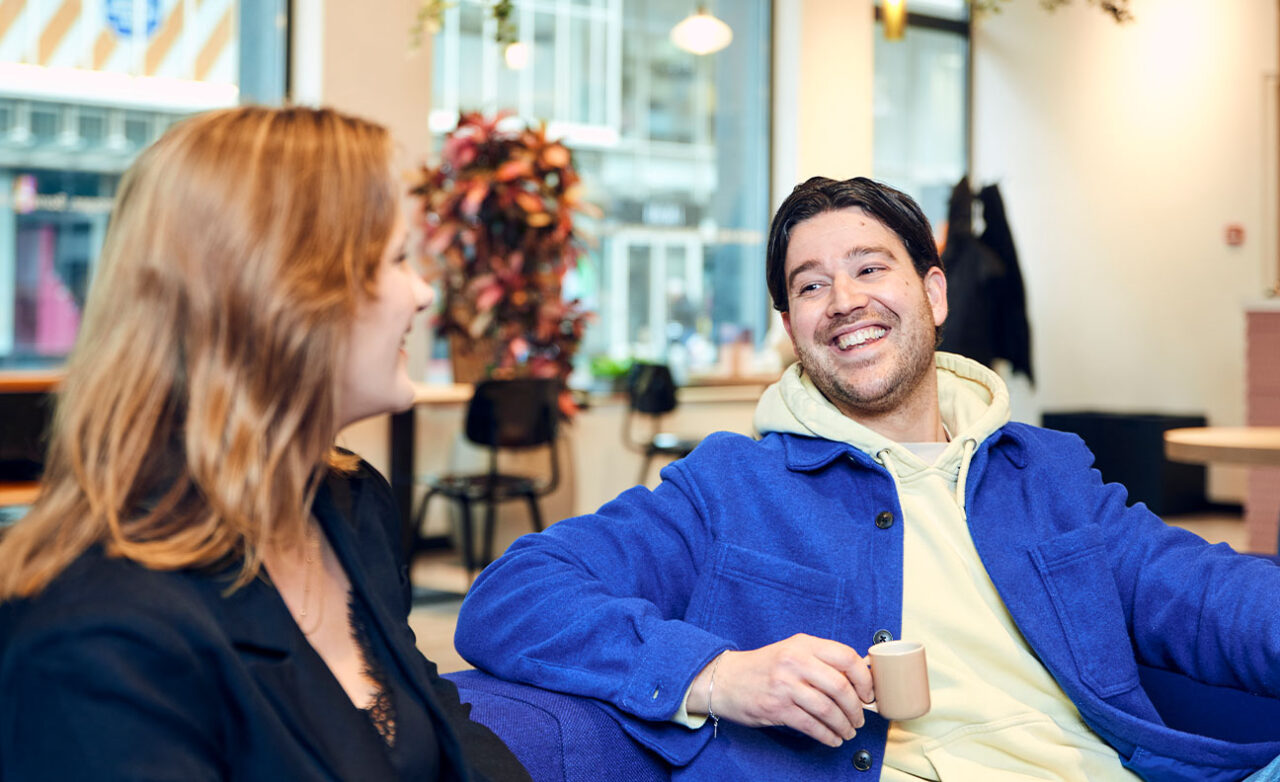A guideline for your conversation with a recruiter
You are (almost) graduated and might already be busy figuring out what you want to do next. Perhaps you even have your first job interviews lined up, including one with a recruiter. An initial conversation with a recruiter is somewhat different from an interview directly with a company. Therefore, we provide you with tips on how and where to best prepare for a conversation with a recruiter.
Applying for jobs with a recruiter
You’ve been in touch with the recruiter and your meeting is scheduled. Chances are, you still don’t know all the details about the role and the company. This can make you feel a bit uncertain about how to prepare. But don’t worry, there are plenty of questions you can ask and things you can share.
When you interview with an employer, you usually receive a lot of information about the role, the team, and the company you might join. Recruiter Carlo explains: ‘The first conversation you have with a recruiter is mainly about you. We really look at who you are as a person. Together, we explore where your interests lie and what doesn’t energize you. It’s possible that after two conversations, you’ll realize your interests are different from what you initially thought.’
Finding it hard to pinpoint your strengths? Use the STAR method to prepare.
Together with the recruiter, you’ll review what you did during your studies and the courses you took. You’ll discuss what you are truly proud of from your academic journey. This helps determine if the role you’re applying for is a good fit for you. “The aim is to find the best match for you.”
Carlo adds: “I often speak with recent graduates. That’s why I also look at what they’ve done outside of their studies. I frequently ask about hobbies and interests. For example, I recently spoke with someone who studied econometrics but was also an enthusiastic gardener. During our conversation about his garden, it became clear that he’s a hands-on person who likes to get things done.”
"We work together to identify your skills and determine where your strengths lie."
What to share about yourself
Think ahead about what you can share about yourself. Don’t worry if you don’t have much work experience; that’s not crucial for the conversation. Talk about your passions, interests, and the sports you play, and what these reveal about you. Your hobbies don’t need to be extraordinary. Carlo says: “When someone mentions they traveled for a while, I’m always curious about what they learned during their journey. What did you find out you’re good at? Maybe you discovered you’re better at making connections with strangers than you thought. And what challenges did you face? Perhaps dealing with all the new changes was much harder than you expected.”
Travel might not be the first topic that comes to mind for a job interview, but it can provide valuable insights into how you adapt to new environments. Carlo adds: “Sports can also say a lot about a person. If someone plays a sport at a high level, you often see that same mentality reflected in their work ethic.”
Side note
The recruiter isn’t part of the team you might join. Sometimes recruiters are even hired externally to find suitable candidates for a company. They are the first to assess if you are a good fit for the company.

Conversations about your hobbies and interests provide a good picture of who you are. This allows the recruiter to see which soft skills you already possess and which ones you might need to develop. Don’t be afraid to share what you find challenging and the skills you have yet to master. This shows your ability to reflect on yourself. By being open about your areas for improvement, you can better determine what truly suits you.
But there are more ways to prepare effectively. Pay attention to your appearance, for example. You don’t need to wear a three-piece suit, but make sure your clothes are neat, wrinkle-free, and clean. Also, skip the drinks the night before the interview. A recruiter will quickly notice if you’re not fully alert.
What to ask about the role
In your conversation with the recruiter, the focus is on getting to know you as a person. Often, a second meeting will follow to discuss various roles. The recruiter will explain the available positions and suggest which ones might be a good fit for you. This step may not be necessary if you already have a clear idea of what you want.
If these discussions go well and both you and the employer are enthusiastic, it’s time for the next step: the job interview with the employer. The recruiter will prepare you thoroughly for this, so you know exactly what to expect. The employer will also want to learn more about you, but this is also your opportunity to ask questions.

Consider what is truly important for you to know. For example: What is the work atmosphere like? What are the opportunities for advancement? What backgrounds do the team members have? Does the company offer hybrid working? Also, think about the type of manager you need. Every manager has their own leadership style, and it’s important that it suits you. Do you prefer regular check-ins and brainstorming sessions, or do you like to work independently and only consult the manager when necessary?
These preferences can significantly impact your job satisfaction and enjoyment, so it’s crucial to consider them. Think about how you want to be inspired by your manager. Maybe you draw inspiration from meaningful conversations, or perhaps from attending courses. Carlo says: “These are all important factors for feeling comfortable and fulfilled in your role. It’s best to ask these questions directly to the employer, as they are part of the company and the team.”

Ready for your first real job?
Are you (almost) ready for a job in the financial sector? Check out our vacancies in Finance, Risk, Data, or IT. Not sure which role suits you best? Get in touch with recruiter Carlo for a brainstorming session!


